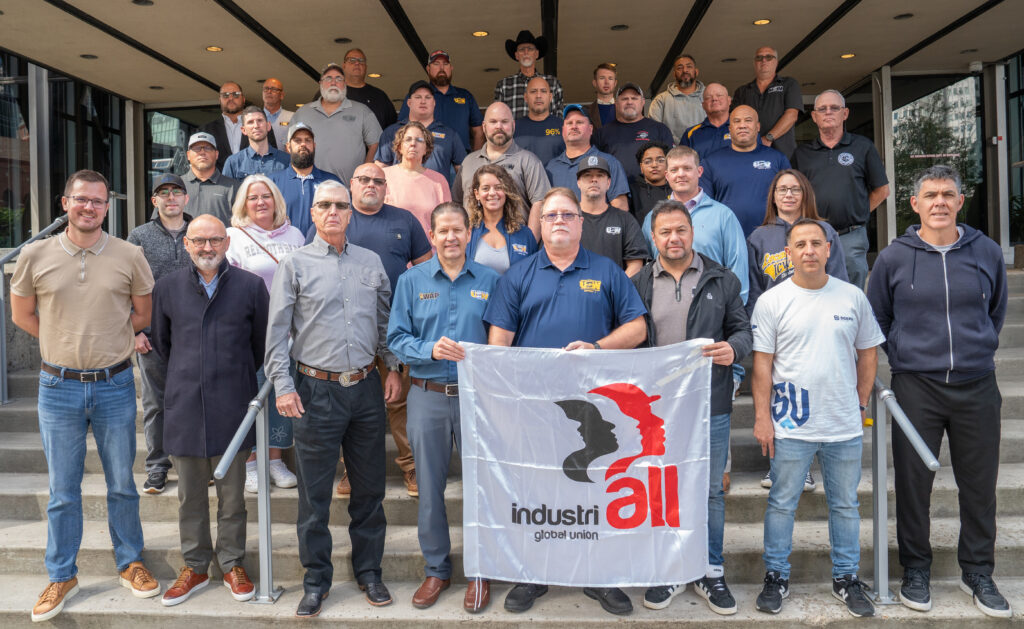23 October, 2025Union representatives from the chemical sector came together to discuss shared challenges across the sector, from workplace safety and training to the growing influence of artificial intelligence on industrial jobs.
On 13-15 October, at the United Steelworkers headquarters in Pittsburgh, USA, union leaders representing workers at Dow, DuPont, Corteva, Roquette, Trinseo and Qnity exchanged experiences and strategies to defend workers’ rights and shape the future of the chemical industry. Participants included affiliated unions from the United States, Germany, Brazil, the United Kingdom, Turkey, Argentina, Belgium, Spain and Indonesia.
Discussions focused on how unions can respond to the pressures of economic uncertainty, shifting trade policies and the fast integration of digital tools and AI technologies. Participants identified the need for stronger international coordination to ensure that chemical workers are equipped, trained and protected as the industry transforms.
Delegates shared experiences from their worksites, comparing collective bargaining outcomes, company financial data and safety practices and discussed strategies to strengthen training, attract and retain skilled workers and ensure that new technologies serve workers rather than replace them.
The meeting took place against the backdrop of ongoing restructuring at Dow, particularly in Europe, which is affecting employees’ jobs in several countries and adding urgency to the call for coordinated union action and fair transition measures.
Kent Holsing, chairperson of the Dow DuPont North American Labor Council and president of USW Local 12075, said:
“The chemical industry is critically important, and its workers are a vital part of that. We must remind these corporations that they cannot forget those who labour to make them profitable and we must protect not only those in our unions but also non-union employees who don’t have that voice.”
The meeting also addressed the industry’s economic uncertainty, tariff fluctuations and the need for stability in global supply chains. Participants emphasized that companies must not use these pressures as a pretext for cutting jobs or undermining union rights.
Tom Grinter, IndustriALL’s director for the chemical sector, said:
“Chemical workers are facing a convergence of pressures: unsafe staffing levels, skills shortages, restructuring and now the fast rollout of artificial intelligence and digital systems. These are not isolated challenges, they are global ones. Through collaboration like this, unions are building the power and knowledge to negotiate fair transitions. IndustriALL’s new AI policy sets a clear line: technology must be designed and deployed with workers, not against them.”
Participants also discussed plans to formalise global cooperation among Dow unions through a potential global Dow Council, aimed at deepening information exchange and joint bargaining coordination.
The initiative reflects a shared commitment to build global solidarity in a sector where international companies make global decisions that affect local workers. By strengthening coordination across borders, unions are ensuring that workers’ voices are heard in boardrooms, supply chains and technological transitions.
